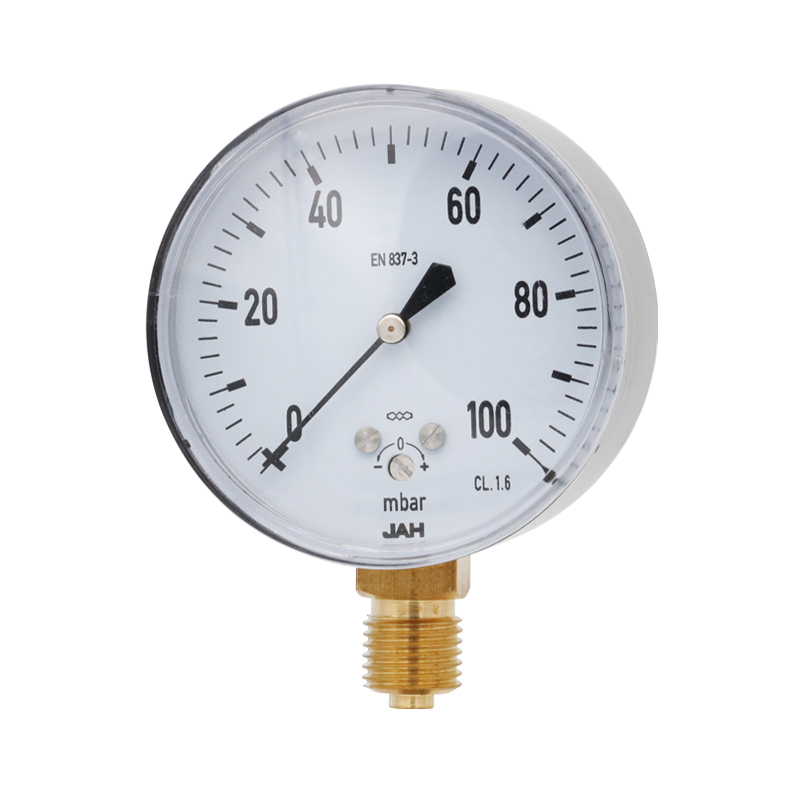
Dec . 25, 2024 22:35 Back to list
Diaphragm Seal Pressure Gauges for Accurate Measurement in Various Applications
Understanding Diaphragm Seal Type Pressure Gauges
In industrial applications, accurate pressure measurement is crucial for ensuring operational efficiency, safety, and compliance with standards. One of the advanced solutions for pressure measurement is the diaphragm seal type pressure gauge. This specialized gauge offers several advantages, particularly in challenging environments where traditional gauges may fail or provide inaccurate readings.
What is a Diaphragm Seal Type Pressure Gauge?
A diaphragm seal type pressure gauge consists of a pressure gauge connected to a diaphragm seal filled with an appropriate fill fluid. The diaphragm is a flexible membrane that separates the process fluid from the measuring chamber of the pressure gauge. This design minimizes the risk of contamination, corrosion, and damage to the gauge, making it an excellent choice for a variety of applications.
Key Features and Benefits
1. Protection from Contamination In many applications, the process fluid can be corrosive, viscous, or contain particulates. The diaphragm seal protects the pressure sensing element from direct contact with the process medium, thereby preventing contamination and extending the life of the gauge.
2. Isolation from Hazardous Fluids For processes involving hazardous substances, diaphragm seals provide a barrier that minimizes the risk of leaks. This is particularly important in industries such as oil and gas, pharmaceuticals, and food and beverage, where safety and hygiene are paramount.
3. Accurate Measurements The diaphragm seal type pressure gauge can maintain accurate measurements even in fluctuating pressure conditions. The fill fluid in the diaphragm transmits the pressure to the gauge without the disturbing effects of process fluid variations.
4. Temperature Resistance These gauges are also designed to handle temperature variations. The fill fluid can be selected based on the temperature range of the application, further ensuring accurate readings.
5. Vibration and Shock Resistance Diaphragm seal pressure gauges are more resilient to vibrations and mechanical shocks compared to traditional gauges. This characteristic makes them suitable for use in dynamic environments such as pump stations and compressor units.
Applications of Diaphragm Seal Type Pressure Gauges
The diaphragm seal type pressure gauge finds applications across various industries, including
diaphragm seal type pressure gauge products

- Chemical Processing In this industry, the accurate monitoring of process pressure is essential to prevent accidents and ensure product quality. Diaphragm seals help to keep corrosive fluids from damaging pressure sensors.
- Food and Beverage Hygiene is critical in food processing. The ability to isolate the measuring instrument from the process fluid ensures compliance with health and safety regulations.
- Pharmaceuticals Similar to food production, maintaining a contamination-free environment is vital in pharmaceuticals. Diaphragm seal gauges provide the necessary protection while ensuring reliable measurements.
- Oil and Gas The oil and gas industry often works with aggressive fluids and high pressures. Diaphragm seal pressure gauges are invaluable for safe and accurate monitoring in such challenging conditions.
Choosing the Right Diaphragm Seal Pressure Gauge
When selecting a diaphragm seal type pressure gauge, several factors should be considered
- Process Fluid Properties Understanding the chemical composition and physical properties of the process fluid is crucial for selecting the appropriate diaphragm and fill fluid.
- Pressure and Temperature Ranges It is essential to choose a gauge that can operate effectively under the expected pressure and temperature ranges.
- Installation Requirements Evaluate the installation needs, including orientation and space constraints, to ensure optimal performance.
- Calibration and Maintenance Regular calibration and maintenance are necessary to uphold the accuracy and reliability of the pressure gauge.
Conclusion
Diaphragm seal type pressure gauges represent a sophisticated solution for pressure measurement in challenging environments. Their ability to isolate the sensing element from process fluids while providing accurate and reliable data makes them essential in many industrial applications. When selecting the appropriate gauge, it is crucial to consider the specifics of the application to ensure optimal performance and safety. As industries continue to evolve, the importance of precision instrumentation like diaphragm seal type pressure gauges remains paramount.
-
High-Quality Pressure Gauge on Fire Extinguisher - Reliable Water Fire Extinguisher Pressure Gauge Suppliers & Exporters
NewsJul.08,2025
-
High-Quality Water Pressure Differential and Gauge Kit Reliable Manufacturers & Competitive Quotes
NewsJul.08,2025
-
High-Precision Digital Diaphragm Pressure Gauge – Reliable Manufacturer & Competitive Quotes
NewsJul.07,2025
-
Wholesale Diaphragm Pressure Gauge Supplier - Premium Quality & Competitive Price
NewsJul.07,2025
-
Digital Diaphragm Pressure Gauge Reliable & Precise Measurement Top Manufacturers Quotes
NewsJul.06,2025
-
High Accuracy Piston Type Differential Pressure Gauge - Reliable Manufacturers & Competitive Quotes
NewsJul.06,2025
